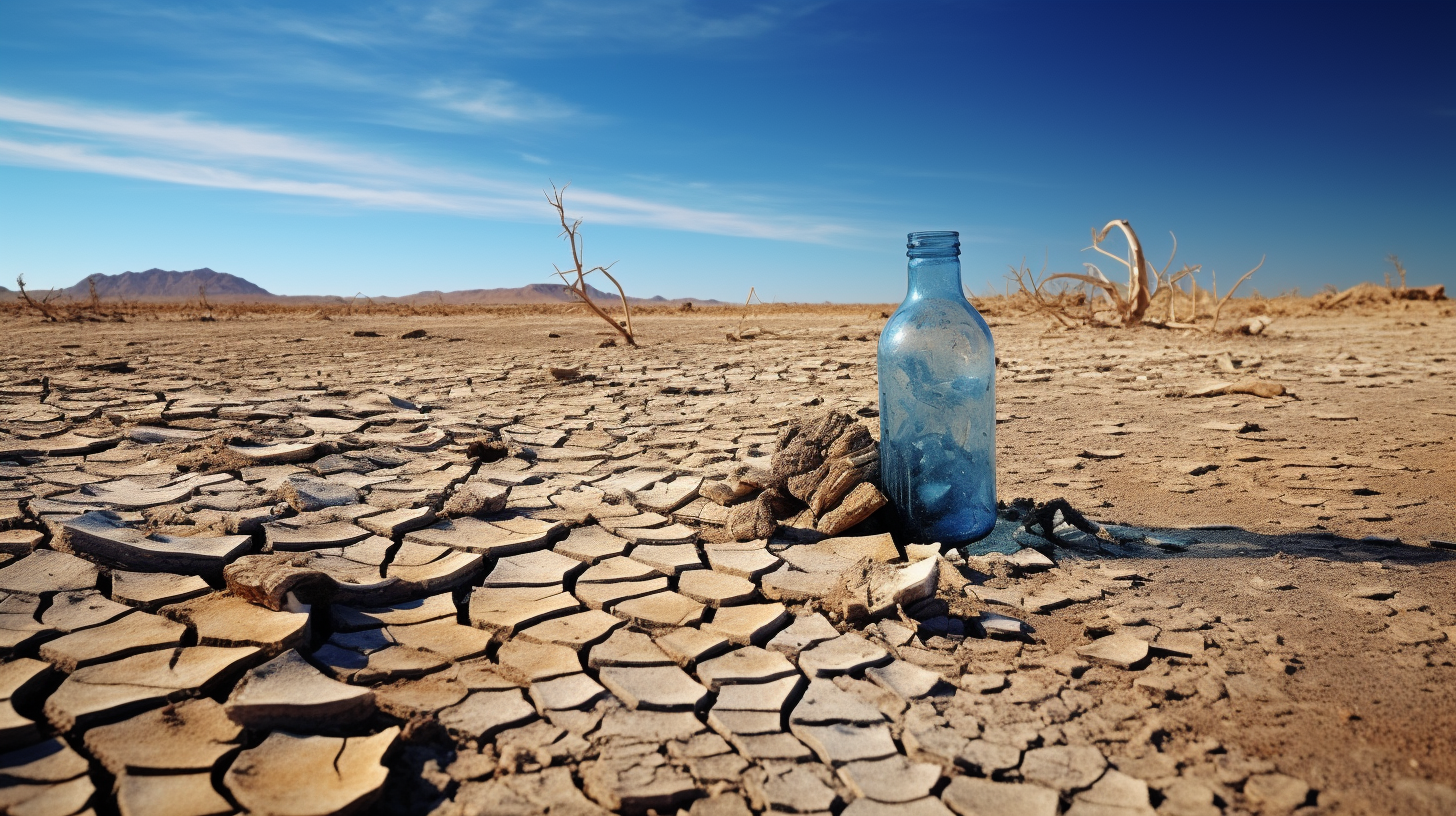In a relentless blend of dust and despair, the future unfolds for thirsty nations like a sun-scorched mirage where water is not just a resource, but a fleeting memory of abundance. Our arid Earth, having long ago choked on the ashes of environmental neglect, now gazes back at us with parched indifference. The chronicle of humanity’s plight in this water-starved epoch is both a testament to our persistent follies and a grim prophecy of times to come.
Where once rivers roamed with untamed freedom, now only their ghostly beds remain, etched into the land like wrinkles on a withered face. Communities that flourished alongside these water sources have crumbled. ‘The Wrath of Water Scarcity’, our previous exposition, revealed the deplorable stage onto which ‘Hydroraiders’ stepped – bandits of moisture in a world where every drop counts. Now, let us delve even deeper into the desert of our imminent destiny, examining the marrow of a crisis that bleeds beyond borders.
In the dust bowls of what were once verdant terrains, the crops stand stillborn in the fields, their potential suffocated beneath the sweltering heat. Cultivation is a fable told by elders to disbelieving youth who have never seen a healthy sprout. Food insecurity climbs the wretched ladder of issues, hand in hand with water scarcity, ensnaring desperate nations in a brutal dance of survival.
The concept of ‘strategic water reserves’ has leapt from the pages of military treatises into the stark realities of governance. Leaders are forced into a new echelon of political chess, where water treaties are inked not with ink but with the potential for conflict. Nations eye each other across depleted rivers, the unspoken threat of water wars simmering just below the surface of diplomatic interactions.
Tales of innovation that once spurred hope have faded into the backnotes of history. Desalination plants, those alchemical marvels, are now relics rusting on the coastline, too energy-hungry for a world where power itself is rationed. Rain harvesting strategies are mocked by the scornful skies that rarely muster a cloud, let alone a shower. And even as we sought to rip water from the very air with our machines, the atmosphere tightens its dry embrace, withholding any mercy of humidity from our desperate grasp.
But what of the people? Human resilience finds a way to trickle through the cracks. Illegal wells, dug by night in a frantic search for groundwater, have become the new goldmines – though such ventures are often met with a dry rattle of pebbles. Water markets flourish in shadowy nooks, where currency has no king, and liquid assets are traded under the table with a fervor that gold once knew.
Children learn to savor the taste of moisture, to treat each droplet on their tongues as the most exquisite luxury. In this world, education is not about arithmetic and literature, but about the conservation of life’s essence. Thirst has become a curriculum, crafting a generation whose wisdom is weighed in water.
The macabre theater of water scarcity has set a morbid stage where the future is an uncertain mirage wobbling on the horizon. Yet, for the inhabitants of this desolate landscape, hope is but a shadow – a dangerous distraction from the concrete struggles that suffocate dreams.
In the dismal twilight of this dystopian reality, we are left to ponder: What does the future hold for these thirsty nations? When the wells of resilience run dry, what remains but the dust of forsaken ambitions?
It is within this paradox that our narrative weaves its most compelling thread – a reminder that while the Earth may adapt to our follies, humanity may not be so resilient. As the clock ticks unrelentingly towards a desiccated doom, the parched prospects of our global neighbors are more than a distant worry; they are a prism through which we must view our own precarious perch upon this fragile world.
